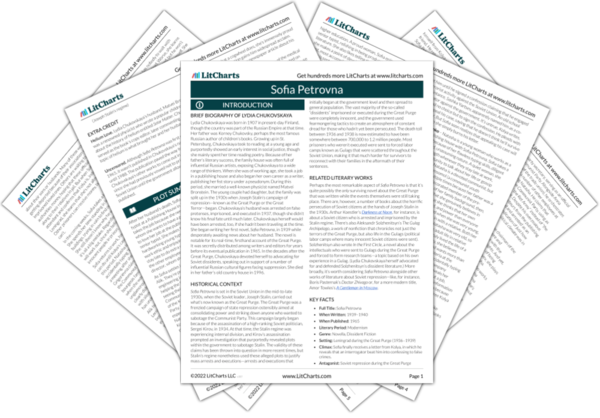There was a fair amount of political tension building in the Soviet Union in the 1930s. The assassination of a high-ranking Soviet politician, Sergei Kirov, sparked internal unrest within the government, as Stalin began to suspect that certain politicians wanted to undermine his party. One of the party’s fears at the time was the growing popularity of fascism in the West, as countries like Italy and Germany fell under fascist rule. The mounting fear surrounding the potential fascist infiltration of the Soviet Union is what provokes the leaders of the publishing house to hold this meeting about remaining vigilantly committed to the Communist cause.
